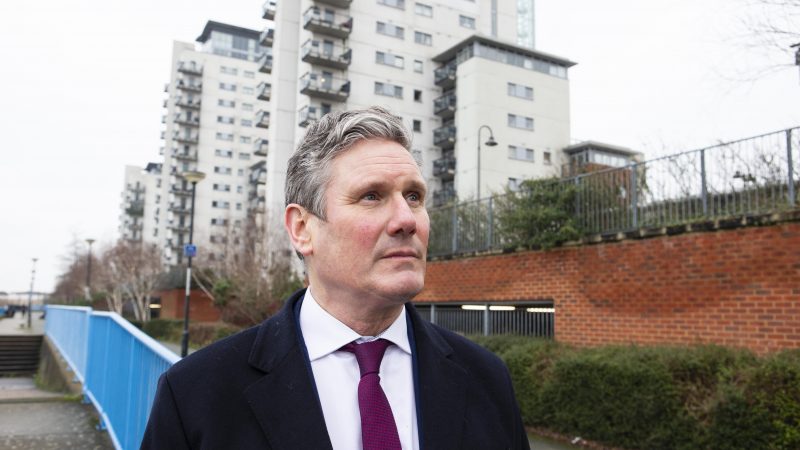
Labour has called on the government to back amendments to the fire safety bill banning leaseholders from bearing remediation cost and implementing the recommendations from the Grenfell Tower inquiry phase one report.
Speaking in anticipation of the legislation’s return to the Commons on Wednesday, when MPs will have the chance to consider amendments proposed by the Lords, shadow minister Sarah Jones urged ministers to “do the right thing”.
The amendment requiring the implementation of the Grenfell inquiry phase one report recommendations was originally tabled by Labour when the proposed law first passed through the Commons, but was rejected at the time by the government.
The Lords subsequently passed the amendments in November, by 269 to 250 votes, and they will now be considered again by MPs as the bill returns to the Commons as part of the ‘ping-pong’ process between the two legislative chambers.
Commenting ahead of the debate, shadow minister for policing and fire services Sarah Jones said: “This is an opportunity for the government to finally put the public’s safety first and to deliver on the promises it has made to leaseholders.
“Blameless victims of this crisis, who are living in dangerous homes and facing financial ruin, expect nothing less. It is not too late for the government to put the British public first, do the right thing and act now.”
Labour has highlighted ahead of the debate on Wednesday that, almost four years since the Grenfell fire and more than a year after the inquiry’s phase one report was published, ministers have still not implemented its recommendations.
The report on the first stage of the inquiry into the Grenfell fire, published in October 2019, said the programme to withdraw the aluminium composite material (ACM) cladding from buildings “should be pursued as vigorously as possible”.
The Fire Brigades’ Union criticised Downing Street last year for doing “the bare minimum to fend off bad headlines” after it was revealed that only a third of high-rise buildings with Grenfell-style cladding had had the material removed.
Labour used an opposition day motion earlier this month to call on the government to establish the extent of dangerous cladding, provide upfront funding for remediation and protect both leaseholders and taxpayers from the costs.
It passed with no votes against as the government instructed its MPs to abstain. Opposition day votes are not binding on the government. Boris Johnson has begun ignoring the motions, as Theresa May did, although Johnson has a majority of 80.
Asked what he is doing to help leaseholders ahead of the opposition day debate on February 1st, Keir Starmer explained to listeners on LBC that his party aimed to protect residents from “intolerable” costs and unsellable properties.
Labour has called on ministers to establish an independent taskforce on the cladding crisis as the opposition party launched a push for the government to take steps to help those affected by the national scandal earlier this year.
Under the proposal, the taskforce would be empowered to establish the extent of the cladding crisis, decide which buildings are attended to first and take enforcement action against building owners who refused to undertake works.
Labour has also demanded that the government set a 2022 deadline for all homes to be made safe, to provide funding for the work to remove dangerous cladding and to make efforts to recover costs from the companies responsible.
The 2017 Grenfell Tower fire, which killed 72 people, and the following inquiry exposed deficiencies in the building safety regime and the potential abuse of safety tests by companies supplying cladding and insulation across the UK.
Laws and regulations introduced to ensure that dangerous cladding is identified and removed have instead left many homes unsellable, with leaseholders being forced to pay tens of thousands of pounds to fix the issues.
According to Labour analysis of figures from the New Build Database, a national record of issues that affect homeowners, as many as 4.6 million properties home to 11 million residents could be affected by the cladding crisis.




More from LabourList
‘Labour is being badly misled on housing’
Reeves bets on patience over populism
‘Energy efficiency changes must work for older private renters’